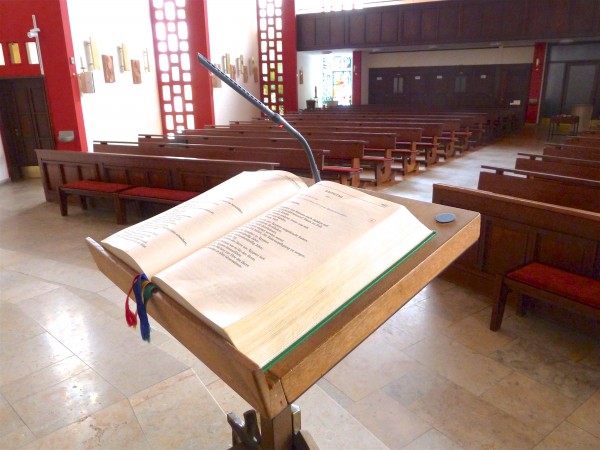churches acoustic solution
กก
To hear something acoustically and
understand it are two things. This is especially true in demanding
acoustics,
as they produce large volume rooms with reverberant materials in
accordance with natural law.
The sound of sacred rooms regularly presents special challenges. The
sound of sacred buildings - such as synagogues, churches,
mosques, temples - requires not only special knowledge of room acoustics
and perceptual acoustics. Particularly expedient is also a
comprehensive,
independent manufacturer market knowledge with regard to individual and
contemporary plant technology. The position as an independent planning
office,
contrary to a sales-oriented installation company, helps enormously.
This approach saves final costs and possible displeasure - rather,
it optimizes the result overall.

Technical requirements for speakers are only one part. Because: The time
in which mostly columnar loudspeakers, in short called clay pillars or
occasionally also
called group radiators, is over. Where previously usually only a simple
speaker system in the church was common, today is often demanded
universal media technology.
In addition to voice transmission today's systems should be able to
transmit recorded sounds, live music of the church band and video sound
for the projection - no booming
or tinny sound, no feedback, clearly and clearly, in the first, as in
the last row of seats and also on the gallery. In addition to the room
acoustics,
existing acoustical features such as sound covers, vaulting etc. are
examined in detail.
Natural sounding and very good speech intelligibility throughout the
church, despite demanding and difficult church acoustics with
appropriate volume are therefore
the minimum acoustic target. But what about the legitimate concerns of
heritage protection? Optically harmonious integration is, of course, an
essential point for us
in addition to the natural and well-sounding transmission. Therefore, we
plan contemporary media technology for churches interdisciplinary, in
close coordination
with architecture and user community.

Just as every human being is individual, so is a church space. Here,
different, individual claims come together. Be it the pure room size,
its geometry with its challenges, possible installation points, or
simply the budget. The structure of the church sound can be done
centrally,
decentralized, with mobile or fixed loudspeakers, with or without
subwoofer. A song display, inductive loops, a connection for laptop and
playback devices,
the inclusion of the sound, projection with screen, temporary recording
of live played music of the church band are other possible components of
the system.
Special components, inconspicuous mounting brackets or
installation-compliant coloring of the technology complete the system
planning.
กก
กก